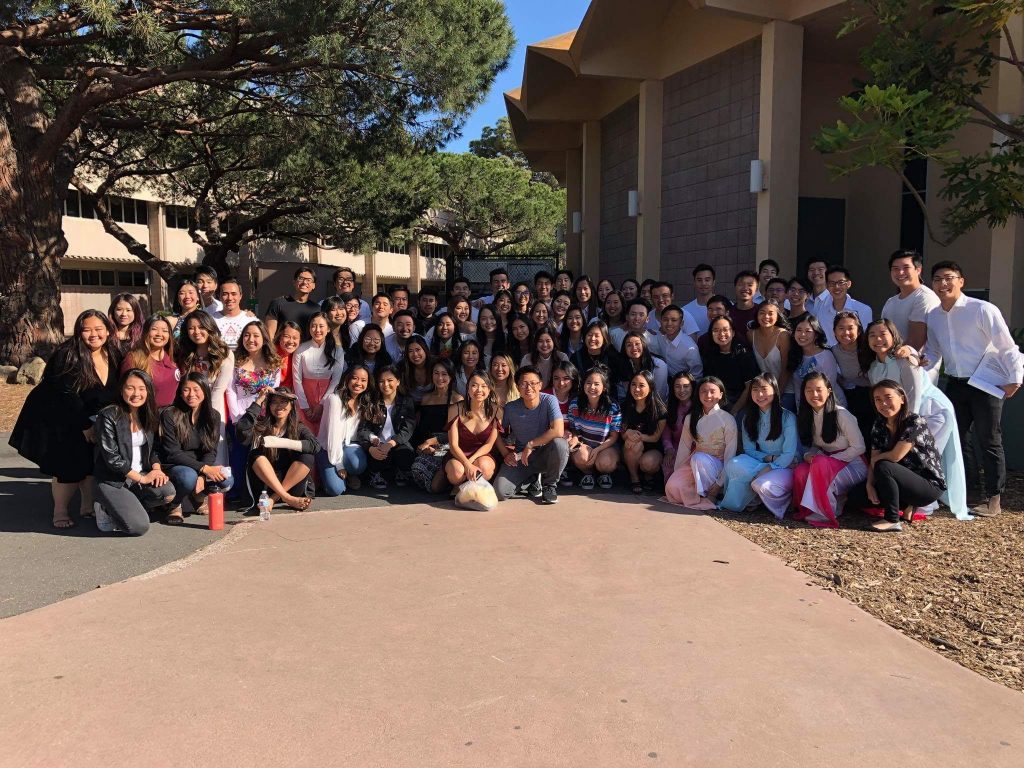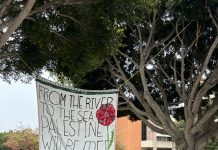Dana Dela Cruz
What is home? What is a homeland? Is it a place, a person, a memory? How do you make a home out of a place that doesn’t feel like one?
These questions of home — and with them, questions of identity, memory, and culture — formed the basis of UCSB’s 20th annual student-run Vietnamese Cultural Night (VCN) last Saturday, titled “The Road Home: Đường Về Quê Hương.” The Vietnamese Student Association (VSA) explored the meanings of home among a people forced to leave their homes behind.
“The Road Home” tackled the Fall of Saigon, or Black April, which is commemorated every April 30 — just two days after VCN this year. The story featured two timelines following one Vietnamese American family. One, set in the present-day, followed a brother-sister pair as they coped with their parents’ deaths; the other, set in the 1970s, followed their parents’ escape from Vietnam and subsequent adjustment to life in America.
The story was grounded in the personal experiences of a variety of Vietnamese Americans. Many people in the audience laughed at the shared experiences of eating freezer dumplings every night or finding amusement in automatic sliding doors.
But VCN drew on heavier experiences, too. In once scene, the brother disrupted the ritual for their parents’ death anniversary and angered his sister who shouted that their cultural traditions were the only connections they had left with their parents.
The script did have faults, however. With its ambitious themes, the story at times lacked focus and often struggled with pacing. Parts of the script dragged and grew repetitive while others remained underdeveloped, touched on only fleetingly. The second act in particular was laden with arguments and shouting matches. Regardless, the actors delivered sincere performances and created a believable onstage family. The storytelling flaws did little to detract from the messages of hope, home, and family delivered in the show’s final scene.
The production was full of heart, evident in every dance, song, and line — not to mention the months of practicing, planning, and fundraising unseen by the audience.
The traditional dances — a traditional hat dance and a modern traditional fan dance — were cheerful and fun, accompanied by upbeat music and colorful stage lights. Performers flaunted nón lá hats and twirled yellow and red scarves in patterns resembling flames. Modern dance performances and choir songs augmented the story’s mood when singers performed a touching a cappella rendition of Coldplay’s “Fix You” around a pair of tombstones to reveal the parents’ deaths.
The most impactful moments of the night were the most vulnerable, encapsulated in spoken word pieces. With only a dimmed stage and a mic stand, a handful of cast members shared their deeply personal stories of cancer, boat refugees, and strained family relationships. The spoken word performances made clear the personal ties cast members have to VCN and its story.
VCN concluded with a video sharing the immigration stories of VSA members, who recounted experiences of refugee camp life, family separation, and other struggles faced by Vietnamese Americans. These stories, too, explored questions of home, or the lack thereof — as the VCN Co-Coordinators explained in an interview after the show, Vietnam was never the same after the war.
“I hope the audience related to the story in some way,” said second year global studies and communication major Michelle Vu, who played the mother, Mi. “You didn’t have to be Vietnamese to relate to it. I think being aware of the immigration narrative is important because it is such a crucial part of what makes up our society and our history as Americans.”











